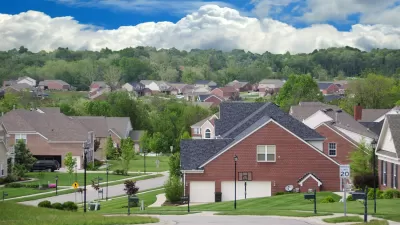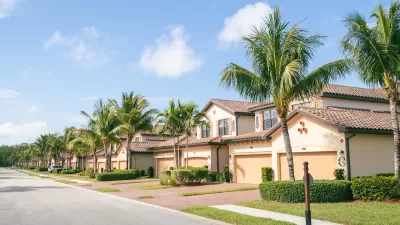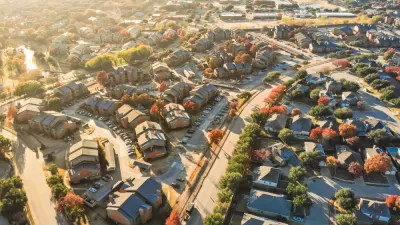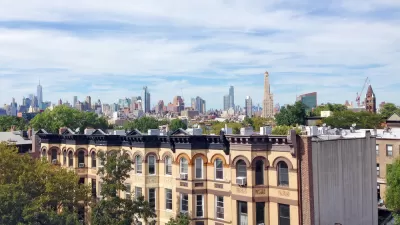In the last three decades HOAs have grown six-fold in the U.S. They now cover 20 percent of American homes, and stifle sustainability and expression through “one of the most significant privatizations of local government functions in history.”

Kaid Benfield unleashes his wrath on America's 323,600 homeowner associations, which "preside over the homes and neighborhoods of an astounding 63.4 million Americans." He details the ways in which such "governing associations" use their powers to stifle expression and sustainable practices, such as planting produce gardens, air-drying clothes, and installing solar panels.
"I use the word “governing” deliberately, because that is very much what HOAs do (and what my condo board did, when I lived in Adams-Morgan)," writes Benfield. "For example, they have taxing power, setting mandatory dues that if not paid can result in the placement of a lien on your property or even foreclosure; they have regulatory authority, setting rules for everything from when you can take out the trash to what color and materials you use in your window treatments to what you can and cannot grow in your yard. They have enforcement power, too, including the right to issue cease and desist orders and to impose financial penalties in the form of fines. One legal observer has called the exercise of quasi-political powers by HOAs 'one of the most significant privatizations of local government functions in history,' pointing out how quickly some of them move to foreclose on private homes because of dues underpayment."
"In a lot of places – probably in most – it’s a sort of government-among-friends, where rules are applied and interpreted with good faith and generosity, where neighbors cooperate on upkeep, and where buildings and communities look better and function better because of it."
"But, in others, homeowners’ associations appear to have more in common with the Soviets than just a communal process."
FULL STORY: Coercion by contract: how homeowners associations stifle expression, sustainability

Alabama: Trump Terminates Settlements for Black Communities Harmed By Raw Sewage
Trump deemed the landmark civil rights agreement “illegal DEI and environmental justice policy.”

Planetizen Federal Action Tracker
A weekly monitor of how Trump’s orders and actions are impacting planners and planning in America.

The 120 Year Old Tiny Home Villages That Sheltered San Francisco’s Earthquake Refugees
More than a century ago, San Francisco mobilized to house thousands of residents displaced by the 1906 earthquake. Could their strategy offer a model for the present?

LA’s Tree Emergency Goes Beyond Vandalism
After a vandal destroyed dozens of downtown LA trees, Mayor Karen Bass vowed to replace them. Days later, she slashed the city’s tree budget.

Sacramento Leads Nation With Bus-Mounted Bike Lane Enforcement Cameras
The city is the first to use its bus-mounted traffic enforcement system to cite drivers who park or drive in bike lanes.

Seattle Voters Approve Social Housing Referendum
Voters approved a corporate tax to fund the city’s housing authority despite an opposition campaign funded by Amazon and Microsoft.
Urban Design for Planners 1: Software Tools
This six-course series explores essential urban design concepts using open source software and equips planners with the tools they need to participate fully in the urban design process.
Planning for Universal Design
Learn the tools for implementing Universal Design in planning regulations.
Ada County Highway District
Clanton & Associates, Inc.
Jessamine County Fiscal Court
Institute for Housing and Urban Development Studies (IHS)
City of Grandview
Harvard GSD Executive Education
Toledo-Lucas County Plan Commissions
Salt Lake City
NYU Wagner Graduate School of Public Service





























